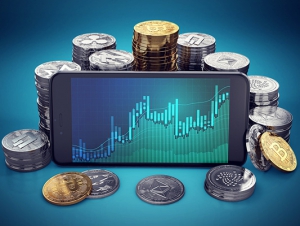2018: the year digital currencies become increasingly mainstream
Book Top Experiences and Tours in Marbella:
If youʻre booking your trip to Marbella last minute, we have you covered. Below are some of the top tours and experiences!- From Marbella: Guadalmina River Guided Canyoning Adventure
- From Malaga and Costa del Sol: Gibraltar Sightseeing Tour
- Puerto Banús by Sailboat: Discover Marbella’s Luxury Coast
- From Malaga and Costa del Sol: Gibraltar Tour
- Costa del Sol: Private 1-Way Transfer to/from Malaga Airport
Indeed, as financial technology evolves at breakneck speed, the way in which we access, manage and use our money is changing dramatically, with these digital currencies, amongst others, leading the charge.
However, some analysts have described the likes of Bitcoin as a ‘fraud’, dismissing it as a ‘fad’ and are saying that crypto prices are in a bubble that’s soon to burst. Many too are staying clear with worries over volatility. These concerns are perhaps legitimate with the price of Bitcoin tanking recently after jumping to enormous highs so quickly at the end of last year.
Others, however, including myself, are more pro cryptocurrencies. With total market capitalisation exceeding half a trillion dollars in the first month of this year, it comes as no surprise that cryptocurrencies are extensively deemed ‘gold 2.0’.
This is upheld by New Hampshire governor and three-term senator, Judd Gregg, who is of the firm opinion Bitcoin could change how currency is viewed around the globe.
Mr Gregg compares Bitcoin to gold. He says gold is valuable as it is accepted by banks and is rare, however, Bitcoin is, in the main, supported by the beliefs of its holders, with the main difference being Bitcoin is not currently held by central banks.
Mr Gregg states: “Bitcoin could indeed alter the entire world of commercial transactions. Should people have sufficient belief that bitcoin or cryptocurrencies that arise from the same underlying principles have real value, then it could usher in a new era, and have staggering potential as a world currency.”
Indeed, there are several advantages to digital currencies that uphold this standpoint.
Bitcoin, in particular, has a fixed supply of 21 million bitcoins. Which is why many economists believe it is more coveted than gold.
However, unlike gold, there are no worries over a so-called ‘digital gold rush’ with Bitcoin. There is no secret supply of the cryptocurrency waiting to be discovered which could result in a price crash due to excessive supply.
In addition, numerous financial experts are of the opinion that digital currencies possess enough potential to be a far more efficient commodity in the future, with a number of plusses.
First, is the fact that cryptocurrencies are decentralised, and their underlying blockchain technologies have significant advantages over traditional funding and transaction platforms.
Furthermore, digital currencies can be divisible to any desired extent. As such, you could buy a house as easily as buying a newspaper.
Indeed, digital currencies are always advancing and improving in line with the evolution of technologies.
Of course, there will always be sceptics, who look on cryptocurrencies as something of a passing phase. And as they are something of an ‘unchartered territory’, maybe these sceptics will be proved right. This is why caution must be taken in regard to investing in digital currencies, with investors ensuring they have a sufficiently diversified portfolio to circumvent risk and capitalise on the opportunity.
But, I believe that in a digital world, there is a real need and demand for digital currencies – as the last 12 months have proven. There are always issues with new technologies. But this should not mean that we don’t progress and evolve –as if that were possible anyway – it simply means that we need tougher checks and more robust regulation. Let’s not forget that previously there were similar concerns about the advent of the internet and, more recently, about driverless cars.
The world is moving forward, and the financial sector is adapting accordingly. One, two or three of the existing cryptocurrencies will succeed in the long-term, whether it’s Bitcoin or not remains to be seen. But the financial technology era has arrived.






















































